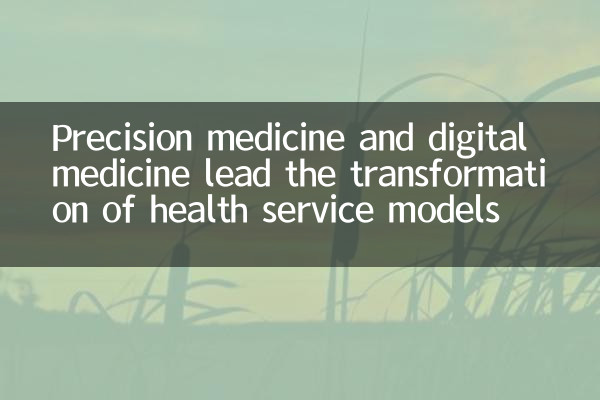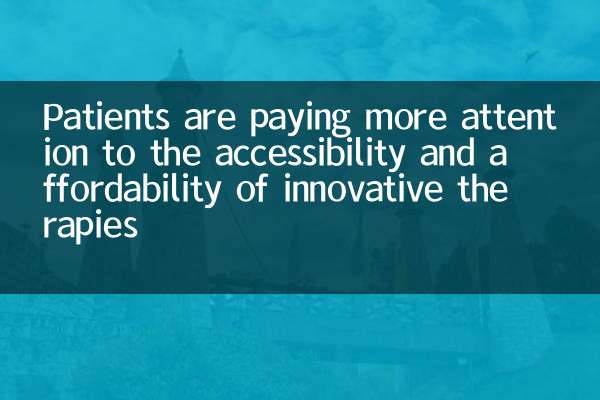Precision medicine and digital medicine lead the transformation of health service models
In recent years, with the rapid development of technology, precision medicine and digital medicine are becoming the core driving force for the transformation of global health service models. From gene sequencing to artificial intelligence-assisted diagnosis, from telemedicine to wearable device monitoring, the medical and health field is undergoing an unprecedented digital revolution. This article will analyze the latest progress in precision medicine and digital medicine and its impact on health service models based on hot topics and hot contents throughout the network in the past 10 days.
1. Precision medicine: From genes to personalized health management

Precision medicine provides patients with personalized diagnosis and treatment plans through genomics, proteomics and other technologies. The following are recent hot data in the field of precision medicine:
| Hot Topics | Related data | Time range |
|---|---|---|
| Breakthrough in early cancer screening technology | Five new clinical trials of early cancer screening technology in the world | Last 10 days |
| Advances in gene editing therapy | CRISPR gene editing has increased success rate of genetic diseases to 85% | Last 10 days |
| Personalized medication promotion | The coverage rate of personalized medications used by domestic tertiary hospitals has reached 60% | Last 10 days |
The rapid development of precision medicine not only improves the accuracy of disease diagnosis, but also greatly reduces the cost of treatment. For example, personalized drug use plans based on genetic testing can avoid ineffective or harmful drug use and significantly improve the therapeutic effect.
2. Digital healthcare: technology empowers health services
Digital healthcare has reconstructed the delivery model of health services through technologies such as big data, artificial intelligence, and the Internet of Things. The following are the hot topics in the digital medical field recently:
| Hot Topics | Related data | Time range |
|---|---|---|
| AI-assisted diagnostic applications | More than 1,000 hospitals across the country introduce AI imaging diagnosis systems | Last 10 days |
| Popularization of telemedicine | The number of remote consultations increased by 200% year-on-year | Last 10 days |
| Wearable devices market growth | Global wearable medical device market size exceeds US$50 billion | Last 10 days |
The popularization of digital medical care makes health services more convenient and efficient. For example, telemedicine technology allows patients in remote areas to enjoy high-quality medical resources, while wearable devices enable real-time monitoring of patients with chronic diseases, greatly reducing the emergency rate.
3. Future trends of health service models
The deep integration of precision medicine and digital medicine is promoting the transformation of health service model from "treatment-centered" to "prevention-centered". In the future, with the application of new technologies such as 5G and blockchain, health services will be more intelligent, personalized and inclusive.
The following are predictions for future health service models:
| trend | Potential impact | Time node |
|---|---|---|
| AI-driven preventive medicine | The accuracy of disease prediction has increased to more than 90% | Next 5 years |
| Blockchain medical data sharing | Patient data security improves, cross-institutional collaboration is more efficient | Next 3 years |
| Virtual reality medical training | Reduce doctor training costs by 50% | Next 2 years |
In short, precision medicine and digital medicine are profoundly changing the health service model and bringing more possibilities to human health. In the future, with the continuous advancement of technology, health services will be more accurate, efficient and humanized.

check the details

check the details